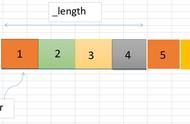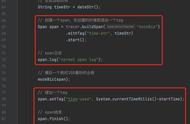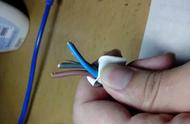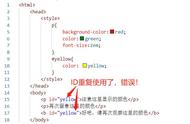* 《英知汇》包含散碎的、往往也有相当纵深的、学校和培训机构常见教学内容之外的英语知识点荟萃,篇幅一般不长,几分钟内可以阅读完。
* 本系列的文章都以英文为主,因为用英语自身来理解和学习英语是最好的方式,这一系列的文章希望在学习英语知识的同时,帮助大家在英语阅读能力上有所提升,并树立英语思维;
* 推荐的阅读的方法是:先原文,适当看解析阅读,还有疑惑再看双语对照。
* 英语单词的音标使用Dictcom和IPA双音标标注,如果需要了解Dictcom音标,请参看我们的《dictionary.com所用的音标体系》一文。脑海中存在单词的读音,有助于词汇的记忆,因此我们尽量给出单词的音标。
* 本篇文章难度系数6.4,由《小仙英语伴读》人工智能难度分析系统提供评分。

Why is W called "double U" when it is clearly "double V"?
【译】为什么W被念作“double U”(两个U),而它显然应该是两个“V”组成的?
【单词】double ['duhb-uh l]['dʌbl] adj. 双重的;成双的;两倍的
When Old English was written, it used a mixture of Latin letters and older runes.
【译】古英语书写时,它混合使用了拉丁字母和古老的北欧文字。
【单词】mixture ['miks-cher]['mɪkstʃə] n. 混合;混合物
【单词】runes 原型:rune [roon][ruːn] n. 古日耳曼字母;古代北欧文字(译作如尼文字);神秘的记号;神秘的或有魔力的符号;具有神秘意义的诗歌或咒语
【专有名词】Latin ['lat-n]['lætɪn] adj. 拉丁语的;拉丁人的
One of these runes was Wynn, which was used to represent the wound that w gives today.
【译】其中一个北欧字母是Wynn,用来代表wound(伤害),也就是今天w这个字母所隐含的意思。
【单词】represent [rep-ri-'zent][ˌreprɪ'zent] vt. 表现;表示;描绘;代表;象征;说明;阐明
【单词】wound [woond; wound][wuːnd] n. 创伤;伤害;伤口
That runes was sometimes replaced by the combination uu - a double u - for the same sound.
【译】这个北欧字母有时会被uu这两个字母的组合所取代——一个双u——代表相同的声音。
【单词】replaced 原型:replace [ri-'pleys][rɪ'pleɪs] vt. 取代;替换;放回原处;偿还
【单词】combination [kom-buh-'ney-shuhn][ˌkɒmbɪ'neɪʃn] n. 结合;结合到一起的事物或人;密码
In german, the letter v changed in sound to be pronounced as f in most cases (it still is).
【译】在德语中,字母v在发音上发生了变化,在大多数情况下发音为f(现在仍然是)。
【单词】german ['jur-muhn]['dʒɜːmən] n. 德语
【单词】pronounced 原型:pronounce [pruh-'nouns][prə'naʊns] vt. 发音
In a few cases the v-sound was retained.
【译】少数情况下v的发音得到了保留。
【短语】a few 少量,一点点;few与a few 的区别是,a few:一点点,用于修饰可数名词,肯定用法,表示还是有一些的。例如:There are a few apples on the table. 桌子上有几个苹果。 few:用于可数名词,否定用法,表示几乎没有。例如:There are few apples on the table. 桌子上几乎没苹果…
【单词】retained 原型:retain [ri-'teyn][rɪ'teɪn] vt. 保持;保留
To distinguish these cases, scribes began to write vv for these.
【译】为了区分这些情况,写作者们在这些时候开始写成vv(两个v)。
【单词】distinguish [dih-'sting-gwish][dɪ'stɪŋɡwɪʃ] vt. 区别;辨认;使显著
【单词】scribes 原型:scribe [skrahyb][skraɪb] n. 抄写员;*员;作家;新闻记者
【单词】began 原型:begin [bih-'gin][bɪ'ɡɪn] v. 开始;着手
When printing was developed in what is today Germany (and to some extent Italy, but that is less relevant here), the printing press manufacturers made types for the letters that they had.
【译】当印刷术在今天的德国发展起来的时候(在某种程度上,意大利也有,但在这里不太相关),印刷机制造商为他们所需要的字母制作字体。
【单词】printing 原型:print [print][prɪnt] v. 印刷;出版;打印;铭刻
【单词】developed 原型:develop [dih-'vel-uh p][dɪ'veləp] v. 发展;发育;开发
【单词】relevant ['rel-uh-vuhnt]['reləvənt] adj. 相关的;切题的;有重大关系的
【单词】manufacturers 原型:manufacturer [man-yuh-'fak-cher-er][ˌmænju'fæktʃərə] n. 制造商
【专有名词】Germany 地名 ['jur-muh-nee]['dʒɜːməni] n. 德国,德语
【专有名词】Italy ['it-l-ee]['ɪtəli] n. 意大利

Since the combination vv was very common, they made a letter for it - w.
【译】由于组合vv是非常常见的,他们为它做了一个字母——w。
In most languages letter is called "double-v".
【译】在大多数语言中,字母被称为“double-v”(双v)。
These printing presses and the letters for them were exported everywhere, including to England.
【译】这些印刷机(打字机、打印机)及其信件出口到世界各地,包括英国。
【单词】exported 原型:export [ik-'spawr]['ekspɔːt] v. 输出;出口;带走,运走
【单词】everywhere ['ev-ree-hwair, -wair]['evriweə] adv. 到处,处处;无论何处
【专有名词】England 地名 ['ing-gluhnd]['ɪŋɡlənd] n. 英格兰;英国
The English quickly realized that they didn't have types for all their letters, so they made do with what they had.
【译】英国人很快意识到,他们的语言(英语)中并不是每一个字母都有字模,所以他们只好用已有的字母来拼出那些字母。
【单词】realized 原型:realize ['ree-uh-lahyz]['riːəlaɪz] vt. 实现;了解;意识到
Since English didn't have the w before printing, they simply reused that letter for the Wynn rune, which was missing.
【译】因为英国人在印刷之前没有w这个字母,所以他们只是把那个字母重用作代表Wynn的符文,因为那时候英语字母中没有代表Wynn的。
【单词】reused [ree-'yoozd]['riː'juːzd] adj. 再生的;再使用的
It is called "double-u" because it was also sometimes written as "uu".
【译】它被称为“双u”,因为它有时也被写成“uu”。
Similar story for the letter Thorn, which was also missing when printing and became the "th" combination.
【译】类似的情况也发生在Thorn这个符文上,这也是在英语中没有现成字母的,因此在印刷时形成了“th”这个组合。
That's a great response!
【译】这个回答很棒!
【单词】response [ri-'spons][rɪ'spɒns] n. 反应;回答;响应;答复
Just wanted to add that in German, 'w' is called the German analogous of the English 'v', and the letter 'v' is called 'fau'(pronounced like fuh oo).
【译】我只是再补充一下,在德语中,“w”类似于英语中的“v”,而字母“v”则被称为“fau”(发音像fuh oo)。
【单词】analogous [uh-'nal-uh-guhs][ə'næləɡəs] adj. 类似的
In Romanian, 'w' is called a 'double-v', like you said, though, and I think that's the case for all romance languages.
【译】在罗马尼亚语中,“w”被称为“双v”,就像你说的,我认为所有的罗曼系语言都是这样。
【专有名词】Romanian [roh-'mey-nee-uhn, ‐'meyn-yuhn][ru'meɪniən] n. 罗马尼亚人;罗马尼亚语 adj. 罗马尼亚的 Rumanian
【注】Romance languages 罗曼语族; 罗曼斯语,由拉丁语演变而成的语言; romance在这里不是“浪漫”的意思
Same in Catalan and Spanish.
【译】加泰罗尼亚语和西班牙语也一样。
【专有名词】Catalan ['kat-l-an, -uhn, kat-l-'an]['kætəlæn] n. (西班牙)加泰罗尼亚(语)
【专有名词】Spanish ['span-ish]['spænɪʃ] n. 西班牙语;西班牙人
So yes, probably all romance languages say double-v.
【译】所以是的,可能所有的罗曼系语言都说双v。
In French it's also "double-v", so yeah, I guess it's safe to assume it happens in all Romance languages.
【译】在法语中也是“双v”,所以是的,我想可以安全地假定,它发生在所有的罗曼系语言中。
【单词】guess [ges][ɡes] v. 推测;猜中;以为 n. 猜测;猜想
【单词】safe [seyf][seɪf] adj. 安全的;安然无恙的;可靠的;谨慎的
【单词】assume [uh-'soom][ə'sjuːm] vt. 假定;设想;承担;(想当然的)认为
【单词】happens 原型:happen ['hap-uhn]['hæpən] vi. 发生;碰巧;出现
【专有名词】French [french][frentʃ] n. 法语

Uhm, actually in Mexican Spanish it's "double-u", so there's that exception.
【译】嗯,实际上在墨西哥西班牙语中是“双u”,所以有个例外。
【单词】Uhm 语气词
【单词】exception [ik-'sep-shuhn][ɪk'sepʃn] n. 例外;不合规则;异议
【专有名词】Mexican ['mek-si-kuh n]['meksɪkən] n. 墨西哥人;墨西哥语 adj. 墨西哥的















